Recommended five best free C++ compilers for Windows 11
C is a widely used object-oriented computer programming language that powers most applications and websites you interact with.
You need a compiler and an integrated development environment to develop C applications, and since you're here, I'm guessing you're looking for one.
We’ll cover some of our top recommendations for C compilers for Windows 11 in this article.
Many of the compilers reviewed will be primarily for C, but there are also many general-purpose compilers you might want to try.
Can MinGW run on Windows 11?
In this article we have not discussed MinGW as a standalone compiler, but it has been discussed as a feature within certain IDEs and is the compiler of choice for the Dev C compiler.
However, it does run on Windows 11 and can be used as a standalone compiler. You must follow these steps:
- Download the MinGW C/C compiler.
- Extract the executable file.
- Set environment variables.
What are the best free C compilers for Windows 11?
Visual Studio Code Extension Compiler
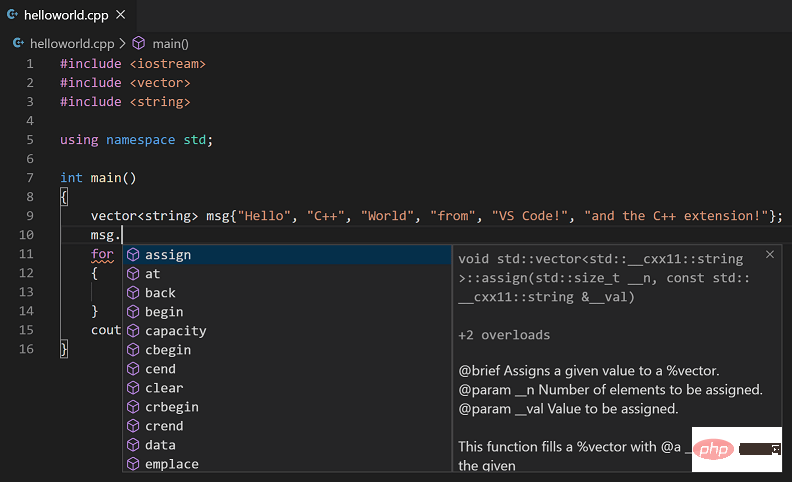
With the Microsoft Visual C Compiler and VS 2022, you can design and Create universal Windows applications or standard Windows desktop applications.
It allows you to access the code base remotely and perform any coding or editing. Its compiler is one of the most efficient, which is what makes it unique. However, you need to install an extension for it to work properly.
With the help of advanced debugging and coding tools, you can also manage code written for Linux using Clang, GCC, or other compilers. Using GDB, you can debug a Linux program while it is running remotely.
Added Features:
- Debugging and Diagnostics
- Productivity Features
- Mobile Development Support
⇒Get the Visual Studio Code Extensions Compiler
Eclipse C Compiler
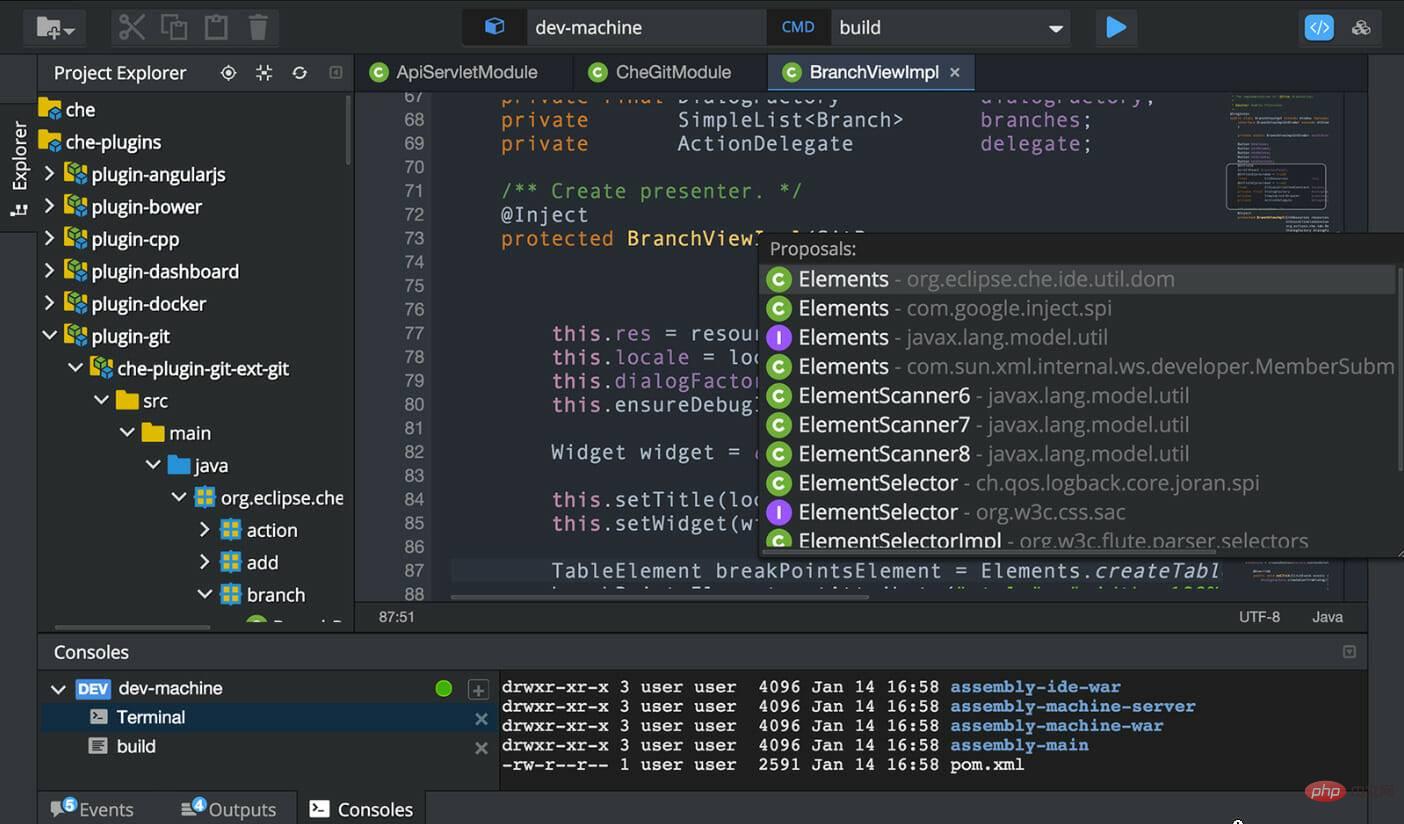
Eclipse is the most popular C and C one of the integrated development environments. The program is based on the Eclipse platform and comes with a powerful C compiler.
It provides a hosting structure that facilitates project development activities. There are several tools available for working with source code. Browsers for macro definition, folding, and grading are just a few examples.
It runs on a variety of operating systems, including Mac OS X, Windows, and Linux. The GUI is great and allows you to drag and drop clips to arrange them.
Additional functions:
- Interface monitoring
- C/C startup
- JDT improvements
⇒Get the Eclipse C compiler
CodeLite IDE and compiler
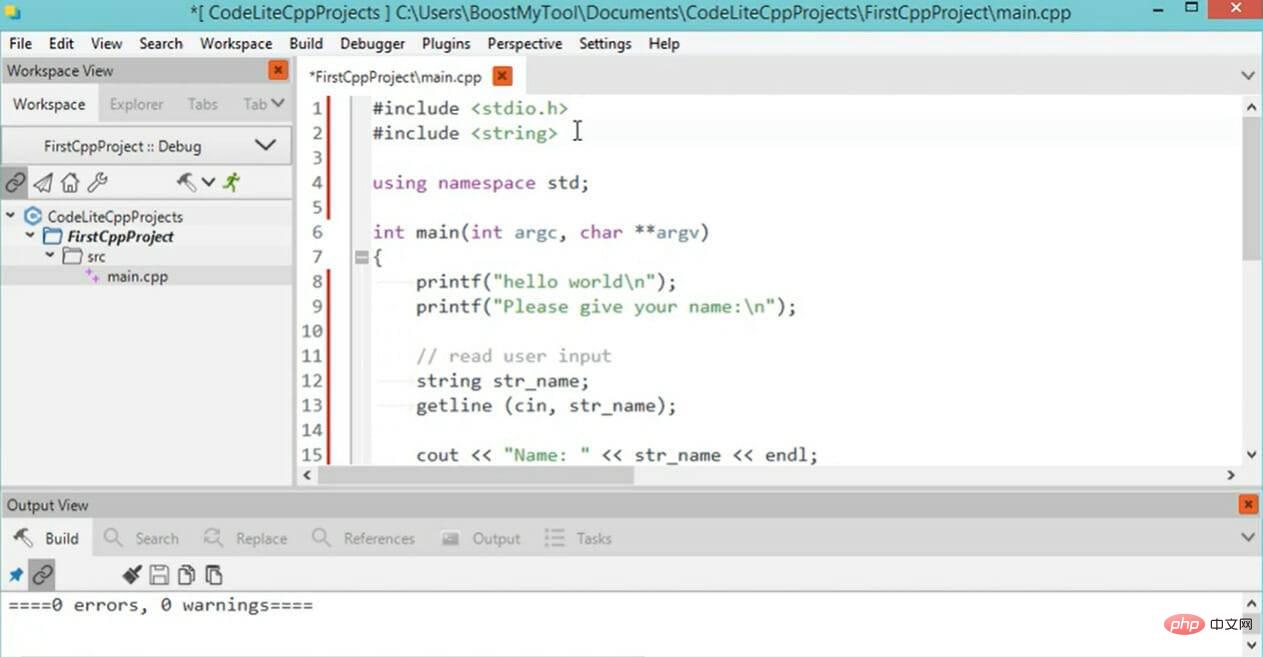
The IDE is open source and free and supports Languages include PHP, C, C and JavaScript.
It is mainly used for Node.js. It's compatible with Mac OS X, Windows, and Linux, and of course, has a great C converter.
You can also create bookmarks for quick debugging operations. By changing the tool's options, you can have it display line numbers.
The tool also has an autocomplete feature, and when saving a file, the program simplifies available lines. Bookmarks and hotkeys can be changed and assigned. The color and font of the background can also be changed.
Added features:
- Full Rust support
- Light
- Clang/GCC
⇒Get CodeLite IDE and Compiler
Qt Creator C IDE and Compiler
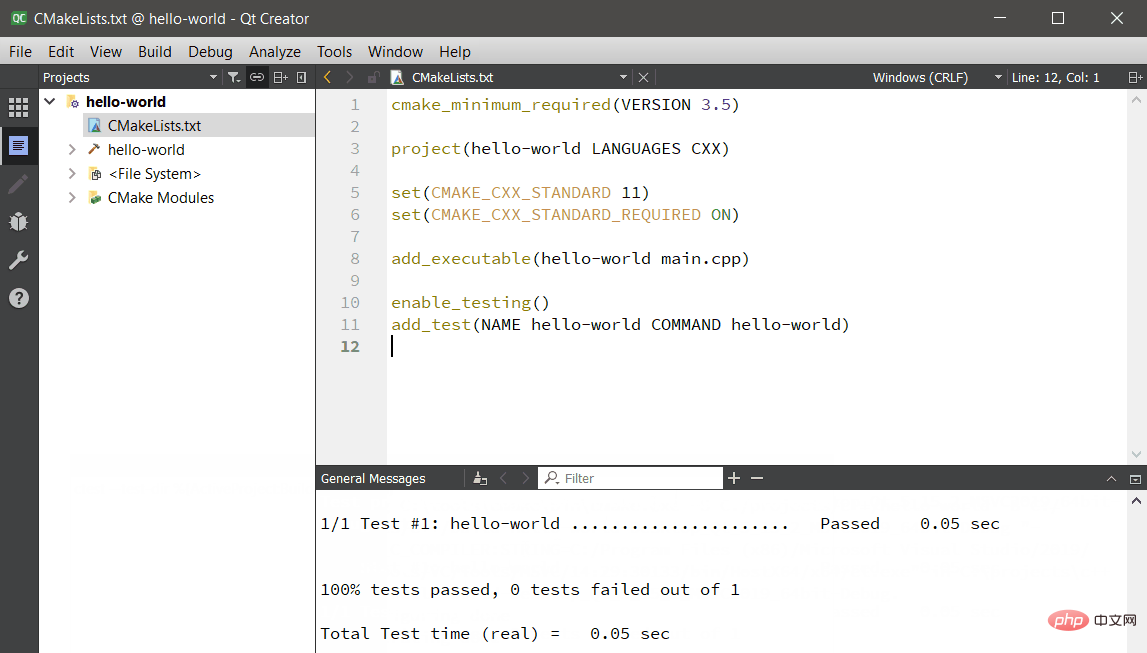
QT Creator Yes An excellent IDE. It has an excellent and fast compiler, making it a practical choice for an IDE. This cross-platform IDE comes with a cutting-edge C code editor.
Form designer, GUI designer, navigation tools and other features are included in the package. Its API and libraries are very popular among programmers. They are easy to use, comprehensive, and well documented.
It comes with a comprehensive collection of tools. These tools are used to build UIs and applications. They can then be used on mobile and desktop operating systems and other platforms.
The most pleasing thing is that it has an intuitive and responsive UI. In the code editor, you can use autocomplete and syntax highlighting. Additionally, it includes profiling and visual debugging capabilities as well as drag-and-drop UI development.
Additional features:
- User Interface Compiler
- D-Bus Viewer
- Distance Field Generator Manual
⇒Getting Qt Creator C IDE and Compiler
Developing C Compiler
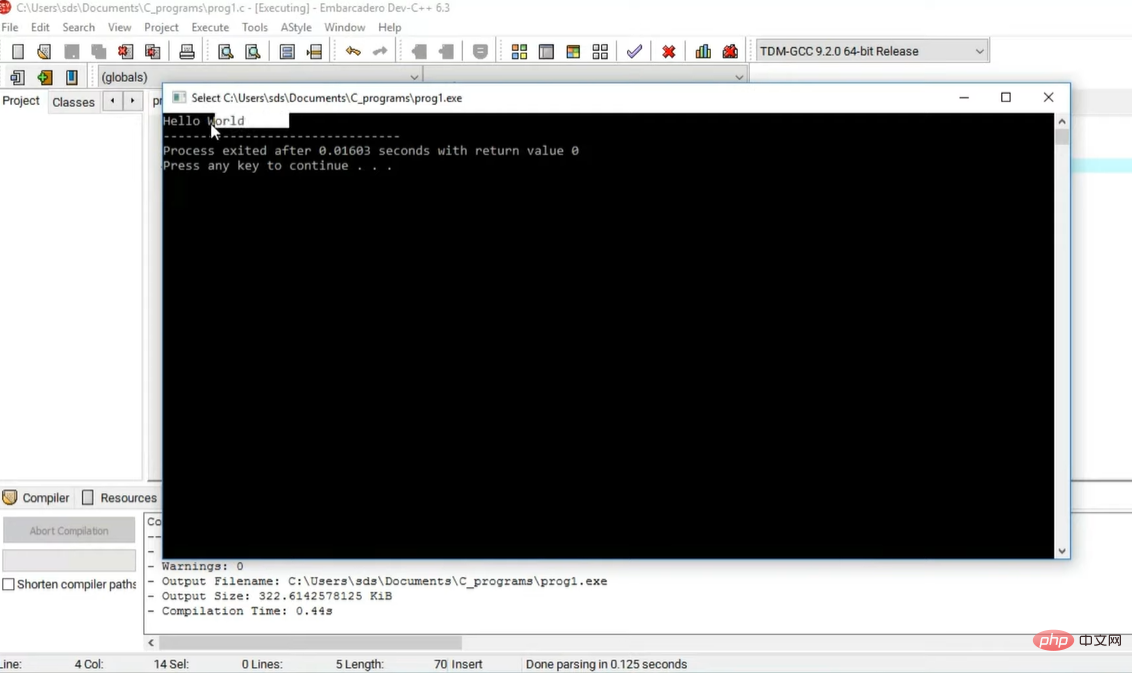
This IDE supports C and other C languages. It uses GCC Mingw port as compiler. The console and graphical user interface are generated as local executable files. Cygwin can also be used with Dev-C.
The application does not have complex programming features but has many basic programming features. It's easy to set up, so you can start using it right away, with all your choices well organized.
This program can generate and modify a range of standard source file types. This utility can also be used to process header files. It is also possible to use resource scripts, specifically .RC.
Additional features:
- Syntax Highlighting
- GPROF Analysis
- Devpak IDE Extension
⇒Get the Dev C compiler
How does the compiler work?
Different compilers have different techniques for analyzing source code and converting it into output code. Regardless of their differences, they generally follow the same steps, even for C online compilers:
- Lexical Analysis: It divides your input code into words Bit. These are small code blocks that reflect certain patterns. Afterwards, the segments are tokenized for syntactic and semantic analysis.
- Syntax analysis: Based on the rules of the input code, the compiler ensures that there is correct code syntax. Typically, an abstract syntax tree is constructed to reflect the conceptual framework of a specific section of code at this stage.
- Semantic Analysis: The compiler performs analysis to ensure that the logic of the code is correct. This stage is more than just syntax analysis. For example, the analysis checks whether the variable type is assigned correctly here.
- IR Code Generation: IR stands for Intermediate Representation. As the code passes through this stage, the format changes. And the new format must match all features of the old format.
- Optimization: The IR code is optimized to prepare for the output of the final code. The compiler determines what optimizations are needed and how much should be applied.
C is a very powerful language and now you can use the best tools to compile your code. It is also an easy language to learn and by using some of the best C learning software you will have your application compiled in no time.
You must note that this list is in no particular order but includes the best free Windows 11 compilers.
Also, remember that every C compiler download must be done on the manufacturer’s official website to avoid introducing malware into your PC.
The above is the detailed content of Recommended five best free C++ compilers for Windows 11. For more information, please follow other related articles on the PHP Chinese website!

Hot AI Tools

Undress AI Tool
Undress images for free

Undresser.AI Undress
AI-powered app for creating realistic nude photos

AI Clothes Remover
Online AI tool for removing clothes from photos.

Clothoff.io
AI clothes remover

Video Face Swap
Swap faces in any video effortlessly with our completely free AI face swap tool!

Hot Article

Hot Tools

Notepad++7.3.1
Easy-to-use and free code editor

SublimeText3 Chinese version
Chinese version, very easy to use

Zend Studio 13.0.1
Powerful PHP integrated development environment

Dreamweaver CS6
Visual web development tools

SublimeText3 Mac version
God-level code editing software (SublimeText3)

Hot Topics
 What is a POD (Plain Old Data) type in C ?
Jul 12, 2025 am 02:15 AM
What is a POD (Plain Old Data) type in C ?
Jul 12, 2025 am 02:15 AM
In C, the POD (PlainOldData) type refers to a type with a simple structure and compatible with C language data processing. It needs to meet two conditions: it has ordinary copy semantics, which can be copied by memcpy; it has a standard layout and the memory structure is predictable. Specific requirements include: all non-static members are public, no user-defined constructors or destructors, no virtual functions or base classes, and all non-static members themselves are PODs. For example structPoint{intx;inty;} is POD. Its uses include binary I/O, C interoperability, performance optimization, etc. You can check whether the type is POD through std::is_pod, but it is recommended to use std::is_trivia after C 11.
 How to pass a function as a parameter in C ?
Jul 12, 2025 am 01:34 AM
How to pass a function as a parameter in C ?
Jul 12, 2025 am 01:34 AM
In C, there are three main ways to pass functions as parameters: using function pointers, std::function and Lambda expressions, and template generics. 1. Function pointers are the most basic method, suitable for simple scenarios or C interface compatible, but poor readability; 2. Std::function combined with Lambda expressions is a recommended method in modern C, supporting a variety of callable objects and being type-safe; 3. Template generic methods are the most flexible, suitable for library code or general logic, but may increase the compilation time and code volume. Lambdas that capture the context must be passed through std::function or template and cannot be converted directly into function pointers.
 What is the mutable keyword in C ?
Jul 12, 2025 am 03:03 AM
What is the mutable keyword in C ?
Jul 12, 2025 am 03:03 AM
In C, the mutable keyword is used to allow the object to be modified, even if the object is declared as const. Its core purpose is to maintain the logical constants of the object while allowing internal state changes, which are commonly found in cache, debug counters and thread synchronization primitives. When using it, mutable must be placed before the data member in the class definition, and it only applies to data members rather than global or local variables. In best practice, abuse should be avoided, concurrent synchronization should be paid attention to, and external behavior should be ensured. For example, std::shared_ptr uses mutable to manage reference counting to achieve thread safety and const correctness.
 What is a null pointer in C ?
Jul 09, 2025 am 02:38 AM
What is a null pointer in C ?
Jul 09, 2025 am 02:38 AM
AnullpointerinC isaspecialvalueindicatingthatapointerdoesnotpointtoanyvalidmemorylocation,anditisusedtosafelymanageandcheckpointersbeforedereferencing.1.BeforeC 11,0orNULLwasused,butnownullptrispreferredforclarityandtypesafety.2.Usingnullpointershe
 What is an abstract class in C ?
Jul 11, 2025 am 12:29 AM
What is an abstract class in C ?
Jul 11, 2025 am 12:29 AM
The key to an abstract class is that it contains at least one pure virtual function. When a pure virtual function is declared in the class (such as virtualvoiddoSomething()=0;), the class becomes an abstract class and cannot directly instantiate the object, but polymorphism can be realized through pointers or references; if the derived class does not implement all pure virtual functions, it will also remain an abstract class. Abstract classes are often used to define interfaces or shared behaviors, such as designing Shape classes in drawing applications and implementing the draw() method by derived classes such as Circle and Rectangle. Scenarios using abstract classes include: designing base classes that should not be instantiated directly, forcing multiple related classes to follow a unified interface, providing default behavior, and requiring subclasses to supplement details. In addition, C
 How to use OpenCV with C for image processing?
Jul 09, 2025 am 02:22 AM
How to use OpenCV with C for image processing?
Jul 09, 2025 am 02:22 AM
Using OpenCV and C for image processing is not complicated. You can quickly get started by mastering the basic process and common functions. 1. Installation and environment configuration: Ensure that OpenCV is installed correctly, Linux can be installed with package manager, Windows can use vcpkg or manually configure the path, and test whether it is normal through a simple program; 2. Basic operations of images: use cv::imread() to read, cv::imshow() to display, cv::imwrite() to save images, and pay attention to the necessity of path judgment and waitKey(); 3. Common image processing operations: including grayscale, Gaussian blur, Canny edge detection and threshold processing, which are usually used in the preprocessing stage; 4. Custom convolution kernel
 What is memory alignment and why is it important in C ?
Jul 13, 2025 am 01:01 AM
What is memory alignment and why is it important in C ?
Jul 13, 2025 am 01:01 AM
MemoryalignmentinC referstoplacingdataatspecificmemoryaddressesthataremultiplesofavalue,typicallythesizeofthedatatype,whichimprovesperformanceandcorrectness.1.Itensuresdatatypeslikeintegersordoublesstartataddressesdivisiblebytheiralignmentrequiremen
 How to generate a UUID/GUID in C ?
Jul 13, 2025 am 02:35 AM
How to generate a UUID/GUID in C ?
Jul 13, 2025 am 02:35 AM
There are three effective ways to generate UUIDs or GUIDs in C: 1. Use the Boost library, which provides multi-version support and is simple to interface; 2. Manually generate Version4UUIDs suitable for simple needs; 3. Use platform-specific APIs (such as Windows' CoCreateGuid), without third-party dependencies. Boost is suitable for most modern projects, manual implementation is suitable for lightweight scenarios, and platform API is suitable for enterprise environments.






